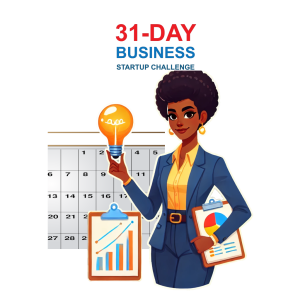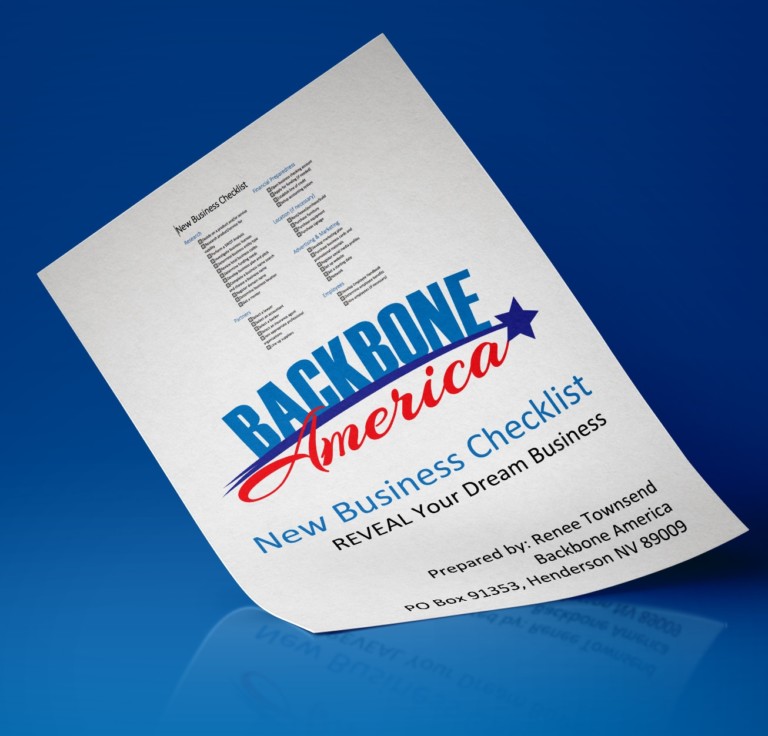Why You Need a Scalable Business Idea First
If you’re dreaming of leaving your 9–5 or launching your first venture, your path to success starts with one thing: a scalable business idea. Not just any idea—but one that grows beyond you, creates income while you sleep, and doesn’t trap you in another full-time job you’ve built for yourself. That’s the power of scalability—and it’s absolutely achievable, even if you’ve never started a business before.
As someone who helps first-time entrepreneurs build businesses designed for freedom—not more burnout—I’ve seen how a clear, scalable idea can change everything. When I first launched Backbone America, I wanted to empower people like you to skip the confusion and start with intention.
Let’s break down how to come up with a scalable business idea that works for you.
1. Understand What a Scalable Business Idea Really Is

A scalable business idea is one that allows you to increase revenue without a matching increase in time or resources. In other words, it can grow without requiring more from you.
Take Backbone America as an example. By focusing on courses and digital resources, I’ve been able to create once and sell many times. That’s one form of scalability—but it’s not the only one. You don’t need to build a tech startup or a digital product empire to scale. In fact, almost any business can become scalable when built with the right systems, delegation, or automation in place.
Let’s use graphic design to illustrate the point:
- A freelance designer trades hours for dollars—when they stop working, the income stops.
- A branding studio with templates, retainers, and a small design team can continue to earn, even if the founder takes time off.
Scalability isn’t about the type of business—it’s about how you structure it. If your goal is financial freedom and flexibility, building a scalable business isn’t just a nice idea—it’s a strategic necessity.
2. Use Your Strengths and Interests as a Starting Point
Scalable doesn’t mean impersonal, high-tech, or cookie-cutter. The most powerful scalable business ideas often come from what you already know—and love. But it’s not just about doing what you’re good at. It’s about turning those strengths and interests into repeatable systems that can grow without constantly needing you to power them.
That’s exactly how Backbone America began.
I combined my strengths—business advising, process design, and automation—with something I genuinely enjoy: creating content. Writing, building resources, and organizing information into actionable steps felt natural to me. So I focused on developing tools, templates, and educational materials that others could use to succeed on their own terms. As I built Backbone America, I documented my processes—first to stay organized, then to transform them into the tools and resources I offer today. That’s what made my business scalable from the start.
Ask yourself:
What do people always come to me for help with?
What problems have I already solved that others still face?
What do I love enough to keep exploring, improving, or teaching?
When you answer these questions honestly, you’ll start to see patterns—opportunities to turn your unique skill set and interests into something structured and valuable. That might become:
A service-based business with standardized packages and a fulfillment team
A knowledge-based business with coaching, curriculum, or licensing models
A productized business with recurring customers and operational systems
Or yes, even digital tools, downloads, or courses—if that fits your strength
3. Think in Terms of Systems, Not Hustle

A scalable business idea is rooted in systems and repeatability—not hustle and grind. You don’t need to trade hours for dollars. You need to build a system that works—then improve it over time.
Systems don’t have to be complicated. They can be as simple as a documented workflow, a checklist, or a repeatable set of steps you follow to deliver consistent results. For me, documenting my own processes has been a game changer. It allows me to outsource repeatable tasks with confidence, knowing that the service or product will be delivered the same way every time—regardless of who’s completing it.
That’s what scalability is all about: creating consistency and freeing yourself from being the only one who can make the business run.
Ask yourself:
What steps do I repeat regularly that could be turned into a documented process?
What parts of my business could someone else do if I gave them clear instructions?
How can I deliver a consistent experience—even as the business grows?
Scalability doesn’t mean you have to do less work upfront—it means the work you do becomes the foundation for future growth. When you build with systems, you build with freedom in mind.
4. Validate the Idea with Real People (Before You Build It)
Don’t build in isolation. One of the most common mistakes first-time entrepreneurs make is assuming they know what people want—without actually testing. A scalable business idea doesn’t have to be perfect; it just needs to solve a real problem that people are willing to pay to fix.
When I started Backbone America, I didn’t blindly guess at what to offer. I shared my idea with my network—people who already knew me as a business advisor. I’d spent years working at an SBDC and knew there was a need. But I still questioned myself: Why would someone pay me when they could go to a Small Business Development Center for free?
Here’s what I discovered: the level of support I had provided, even at the SBDC, often went above and beyond what’s typically offered. And when I visited other centers, I saw the gap even more clearly. I realized I wasn’t competing with the basics—I was offering depth, clarity, and systems that many entrepreneurs weren’t getting elsewhere.
Add to that my experience with business process automation—something I now do daily in my full-time role—and I knew I was tapping into something essential. If local government departments needed systems to save time, how much more would a small business with limited resources need the same?
If you’re in the early stages of your business idea, here are a few ways to validate it:
Ask your network: Share your idea and ask, “Would this be useful? Why or why not?”
Start with a low-cost offer: Offer a beta version or minimum viable product to get feedback.
Look at the gaps: What are people not getting from existing solutions?
Validation isn’t about waiting for permission. It’s about collecting real-world input to shape your offer—and sometimes, confirming what you already know from experience.
5. Start Small, but Think Big

You don’t need to launch with a full-blown website, 20 products, and a complicated funnel. In fact, that’s one of the fastest ways to get overwhelmed and stall your progress. A scalable business doesn’t start with complexity—it starts with clarity.
When I began building Backbone America, I didn’t try to do everything at once. I focused on one offer—the 31-Day Business Startup Challenge—and used it to lay the groundwork for everything that would come next. From there, I started documenting what worked, where people needed the most support, and what systems I could build to support them automatically in the future.
That’s the path I continue to follow:
Start with a strong offer that solves a real problem
Test it, refine it, and systematize what works
Then layer in automation—like email sequences, delivery systems, and smart sales paths—when the time is right
Scalability is a journey, not a launch checklist. It’s not about doing more; it’s about building smarter, one step at a time. Start with the foundation. The rest can grow from there.
Final Thoughts: Your Scalable Business Idea Is Closer Than You Think

You don’t need a business degree, a massive audience, or a ton of money to get started. What you do need is clarity, consistency, and a willingness to test and grow—one step at a time.
That’s exactly why I created Backbone America: to help first-time entrepreneurs build scalable, expandable businesses that don’t just replace a job—but create real financial freedom.
If you’re ready to stop trading time for money and build a business that supports your lifestyle, it all starts with one thing—your idea, and whether it’s built to grow.
The 31-Day Business Startup Challenge was built with that foundation in mind. Days 1 through 3 focus entirely on helping you come up with a business idea, refine it into something clear and focused, and vet it against real-world needs.
Ready to build a business that grows with you?
Join the 31-Day Business Startup Challenge and take the first step toward launching a business that’s built for freedom—not burnout.
Because the right scalable business idea isn’t just closer than you think—it’s the foundation for everything that comes next.






